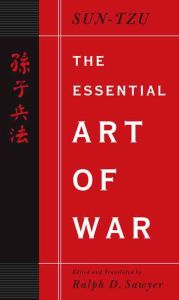Join getAbstract to access the summary!

Join getAbstract to access the summary!
Sun Tzu and Ralph D. Sawyer
The Essential Art of War
Basic Books, 2005
What's inside?
Ancient General Sun-Tzu tells you how to fight strategically. Now you just need to know when to fight – and when not to.
Recommendation
This short book delivers the essentials of Sun-Tzu’s classic treatise. Ralph D. Sawyer, a translator and expert on Chinese military strategy, provides just enough supplementary material to put the work in context. Unlike many other contemporary adapters of this work, Sawyer does not try to suit Sun-Tzu’s words to business, romance or other modern concerns. Although he includes a few words about business applications in the book’s concluding pages, he seems clearly uncomfortable regarding this classic as anything but a military work. He does an admirable job of sticking to the task at hand, drawing out the essence of what Sun-Tzu wrote, and pointing out its specific relevance in the political and military circumstances that formed the legendary general’s environment. Sawyer provides fascinating background information to make the meaning of the text clearer. On the whole, getAbstract finds that this is an excellent, concise summation and presentation of this seminal work.
Summary
About the Authors
Sun-Tzu was the great, legendary Chinese master of warfare. Translator Ralph D. Sawyer is a leading contemporary scholar of Chinese warfare.


















Comment on this summary